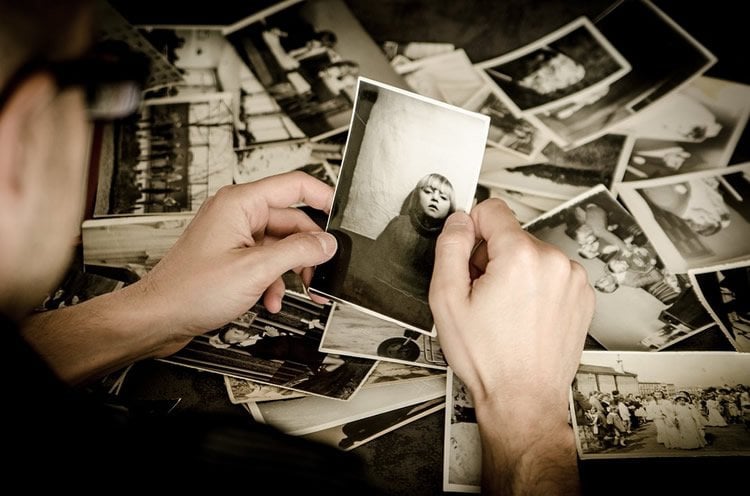Summary: A new study reveals that over night, the brain automatically preserves memories for important events and filters out other, less relevant information. The findings provide new insight into the processes that help guide decision making and human behavior.
Source: Columbia University.
The brain’s ability to preserve memories lies at the heart of our basic human experience. But how does the brain’s mechanism for memory make sure we remember the most significant events and not clog our minds with superfluous details?
According to a new study by Columbia University researchers, the brain plays back and prioritizes high-reward events for later retrieval and filters out the neutral, inconsequential events, retaining memories that will be useful to future decisions.
Published today in the journal Nature Communications, the findings offer new insights into the mechanisms of both memory and decision making.
“Our memory is not an accurate snapshot of our experiences. We can’t remember everything,” said Daphna Shohamy, senior study author and principal investigator at Columbia’s Mortimer B. Zuckerman Mind Brain Behavior Institute and a professor in the Department of Psychology. “One way the brain solves this problem is by automatically filtering our experiences, preserving memories of important information and allowing the rest fade away.”
The effect, however, takes time to kick in. “The prioritization of rewarding memories requires time for consolidation,” said study co-author Erin Kendall Braun, a recent graduate student in the Shohamy lab at the Zuckerman Institute and psychology in Columbia’s School of Arts and Sciences. “Our findings suggest that the window of time immediately following the receipt of the reward — as well as a longer overnight window including sleep — work jointly to modulate the sequence of events and shape memory.”
To carry out their study, the researchers recruited participants to explore a series of computer-simulated mazes looking for a hidden gold coin, for which they were paid one dollar. The maze was made up of a grid of grey squares and as participants navigated different locations they were shown pictures of everyday objects, such as an umbrella or a mug. The researchers then surprised participants with a test of their memory for these objects.
When the surprise memory test was given 24 hours after exploration, participants remembered the objects closest to the reward (the discovery of the gold coin) but had forgotten the others. This meant that reward had a retroactive effect; memory for objects that had no special significance when they were initially seen were later remembered only because they were close to the reward. To the researchers’ surprise, this pattern of memories was not found when they tested memory immediately. The brain needed time to prioritize memory for the events that led to the reward.
The test was replicated six times in different variations with a total of 174 participants.
“We find the results exciting because they show that experiences considered mundane when they happen are changed in memory due to their association with something meaningful later,” Shohamy said. “The experiment demonstrates that what gets remembered isn’t random. The brain has mechanisms to automatically preserve memories important for future behavior.

“For memories to be most useful for future decisions, we need them to be shaped by what matters, and it’s important that this shaping of memory happen before choices are made.”
Though the data provide insight into the structure of memory playback, how this happens in the human brain remains a mystery. The process probably involves dopamine, a chemical known to be important for rewards, and the hippocampus, the brain region that is important to long-term memory, but further research is needed to understand the mechanism by which this happens, Shohamy said.
Additionally, she said, an important follow-up question would be the effect of negative events on memory — a study “that would be a lot less fun for the participants.” But like the current study, she added, it would help us understand how motivation affects memory and decision making. This understanding would have important implications for education and also for mental health.”
Funding: This research was supported by the National Institute of Health (5R01DA038891 to D.S.), the McKnight Foundation (MCKNGT CU16-0460 to D.S.) and the National Science Foundation (Career Award BCS-0955494 to D.S. and Graduate Research Fellowship DGE-1144155 to E.K.B.).
Source: Carla Cantor – Columbia University
Publisher: Organized by NeuroscienceNews.com.
Image Source: NeuroscienceNews.com image is in the public domain.
Original Research: Open access research for “Retroactive and graded prioritization of memory by reward” by Erin Kendall Braun, G. Elliott Wimmer & Daphna Shohamy in Nature Communication. Published November 20 2018.
doi:10.1038/s41467-018-07280-0
[cbtabs][cbtab title=”MLA”]Columbia University”Brain Prioritizes Most Rewarding Experiences When Storing Memories.” NeuroscienceNews. NeuroscienceNews, 24 November 2018.
<https://neurosciencenews.com/memory-experience-10248/>.[/cbtab][cbtab title=”APA”]Columbia University(2018, November 24). Brain Prioritizes Most Rewarding Experiences When Storing Memories. NeuroscienceNews. Retrieved November 24, 2018 from https://neurosciencenews.com/memory-experience-10248/[/cbtab][cbtab title=”Chicago”]Columbia University”Brain Prioritizes Most Rewarding Experiences When Storing Memories.” https://neurosciencenews.com/memory-experience-10248/ (accessed November 24, 2018).[/cbtab][/cbtabs]
Abstract
Retroactive and graded prioritization of memory by reward
Many decisions are based on an internal model of the world. Yet, how such a model is constructed from experience and represented in memory remains unknown. We test the hypothesis that reward shapes memory for sequences of events by retroactively prioritizing memory for objects as a function of their distance from reward. Human participants encountered neutral objects while exploring a series of mazes for reward. Across six data sets, we find that reward systematically modulates memory for neutral objects, retroactively prioritizing memory for objects closest to the reward. This effect of reward on memory emerges only after a 24-hour delay and is stronger for mazes followed by a longer rest interval, suggesting a role for post-reward replay and overnight consolidation, as predicted by neurobiological data in animals. These findings demonstrate that reward retroactively prioritizes memory along a sequential gradient, consistent with the role of memory in supporting adaptive decision-making.







